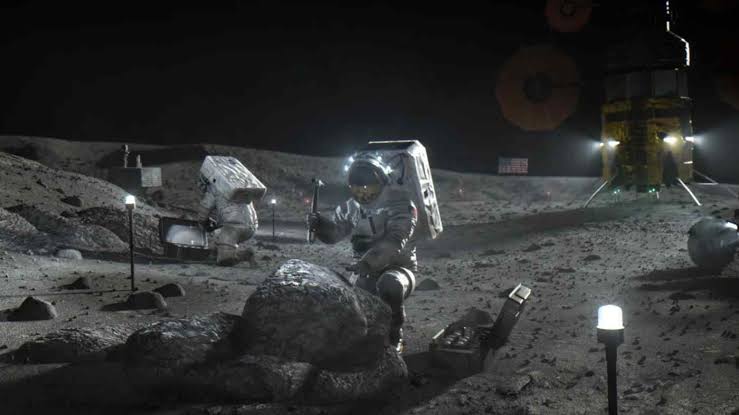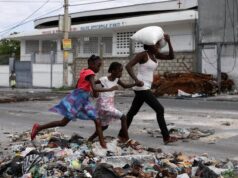2 Jap astronauts to be selected for U S led Chandrama landing in 2028 or later

China is planning human Lunar landing by 2030 and India aims to do it by 2040 definitely, if not earlier. So a jittery US mission aims at sending humans to Chandrama by 2026 and again 2028. For this they are tieing up with Japan.
Japan will select two astronauts to send to Chandrama in 2028 or later from seven candidates after the Japanese science ministry and the U.S. space agency on Wednesday confirmed flight opportunity allocations in the U.S.-led Artemis Chandrama exploration program.
Some of the Japan Aerospace Exploration Agency’s candidates, including two trainees recruited in February last year, expressed their hope to be picked for the Artemis program and become the first non-American astronaut to land on the Chandrama.
“I will brush up my skills so that I will be selected as one of the Japanese astronauts to engage in activities on the lunar surface,” said Takuya Onishi, 48, in a statement released by JAXA following the agreement between the Japanese ministry and the National Aeronautics and Space Administration, better known as NASA.
Kimiya Yui, 54, said he was delighted to know of the Japan-U.S. agreement, adding, “The more difficult a mission is, the more thrilled I am.”
Yui and Onishi took part in an ISS mission in 2015 and 2016, respectively, and they both have been picked to participate in future missions scheduled around 2025.
JAXA’s most experienced astronauts are Satoshi Furukawa, 60, and Akihiko Hoshide, 55, who have went on two and three space missions, respectively.
They have spent over 300 days aboard the International Space Station, with Hoshide serving as its commander during his mission in 2021.
Norishige Kanai, 47, is the youngest astronaut at JAXA, having joined one ISS mission in 2017.
Makoto Suwa, 47, and Ayu Yoneda, 29, are expected to complete their training and become astronauts by the end of this year.
When the two trainees were recruited, their job description included possible participation in lunar missions.
As for veteran astronauts, Koichi Wakata, 60, who went on five space missions, a record for a Japanese astronaut, and Soichi Noguchi, 58, are not among the candidates as they have already left JAXA, the agency said.
JAXA said it will pick two Japanese astronauts for the Artemis program through consultation with NASA.
U.S. President Joe Biden announced the allocation of Japanese astronauts in the Artemis program following a meeting with Japanese Prime Minister Fumio Kishida in Washington on Wednesday.
Although the timing of the opportunities will be determined by NASA, officials have said the first Japanese astronaut will be selected at an early date for a flight possibly in 2028 or thereafter.
The second Japanese astronaut will be chosen based on the timing of the arrival of a Japan-made pressurized rover, which astronauts would be able to drive on the lunar surface without wearing spacesuits, according to Japanese officials. The vehicle, dubbed the Lunar Cruiser, could be sent to the Moon in 2031 and used for 10 years.
The Artemis program aims to send U.S. astronauts to the lunar surface in September 2026, marking the first time in over half a century since the Apollo missions. The 12 astronauts who landed on the Lunar then were all white American men, but this time women and non-white astronauts are due to be selected.
However it seems that in all probability there will be humans living in four different bases on Chandrama by 2045. These will of India, China, USA and may be that of Russia.




